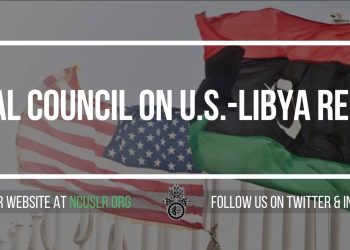By Sami Zaptia.
Frankfurt, 3 September 2018:
In a fluid and ever-changing scenario on the ground, forces aligned to the internationally-recognized Tripoli-based Libyan government (Presidency Council / Government of National Accord) headed by Faiez Serraj, seem to have consolidated their positions against the advancing Tarhuna-based 7th infantry brigade led by the Kani brothers.
The latest Tripoli Ministry of Health figures report that there have now been 47 deaths and 129 injuries from the outbreak of the militia fighting until today.
Saturday and Sunday’s fears that the Tarhuna forces would over-run the Tripoli forces and possibly overthrow the Serraj-led PC/GNA by Monday seem to have dissipated. The Tarhuna forces’ advances seem to have been checked over the last 48 hours to the outskirts of Tripoli as the Tripoli forces, initially caught by surprise, seem to have mustered a more organized defence and counter-attack.
The chances of a better defensive effort by the Tripoli militias were improved markedly by the arrival of the Bunyan Marsous forces from Misrata late last night said to be numbered in the ‘‘hundreds’’ of vehicles.
Moreover, after keeping a low profile for the first week, today saw the entry of the Special Deterrence Force (SDF) into the fighting. They were reported to have made advances and forced the Tarhuna forces back in the Ain Zara area.
Analysts are now wondering if the Tarhuna forces have ‘‘bitten off more than they can chew’’ by fighting on a multiplicity of fronts across south west, south and south eastern Tripoli. It is also though that they have lost the first movers’ advantage and element of surprise and are losing momentum.
Initially, the SDF had delayed their participation in the fighting preferring instead to guard their Mitiga headquarters with its thousands of ‘‘terrorist’’ prisoners.
With regards to the Bunyan Marsous forces, it was thought that they, together with the Emad Trabelsi led Zintani forces, would be deployed as the ‘‘neutral’’ PC/GNA forces. However, some reports now say that there are no plans for them to participate in offensive fighting against the Tarhuna forces on the southern outskirts of Tripoli, rather they were brought in to defend the Mitiga prison.
This is especially so after the Serraj Ministry of Justice confirmed yesterday’s report of the break-out of 400 serious criminals from the Ruwaimi prison in Ain Zara.
On the political front, the Serraj PC/GNA announced yesterday that it is to start implementing the ‘‘security arrangements’’ contained in the Skhirat Libyan Political Agreement (LPA) of December 2015. This entails the holy grail of prohibiting any weapons within urban centres and disbanding and amalgamating current militias into unified civilian-controlled, legitimate army and police.
It will be kept in mind that the Serraj-led PC/GNA has failed markedly to achieve any traction in this regard as it has found itself a hostage of the very militias that are protecting it – and it hopes to disband and amalgamate into a national army and police force.
Its efforts to create a new army in the shape of the Presidential Guard have been very slow since the signing of the 2015 LPA.
Meanwhile, UNSMIL invited the ‘‘various concerned parties to an expanded meeting on Tuesday noon’’. The meeting received the support of the EU’s High Representative Federica Mogherini.
The Italian embassy in Tripoli was forced to deny Italian media reports that it was vacating its embassy as non-essential staff and some ENI staff were vacated by boat out of Tripoli. Italian media also reported that the Italian government had denied that it was preparing its special forces to intervene in Libya.
In the same vein, AFRICOM was also forced to release a statement denying it was going to intervene in the fighting after receiving a request for help from the Serraj PC/GNA.
Domestically, Libya’s internationally-recognized parliament in Tobruk, the House of Representatives (HoR), was forced to postpone its potentially important session today planned to pass a constitutional amendment for the passage of the referendum law on Libya’s draft constitution. The postponement was caused by the closure of Tripoli’s Mitiga airport which prevented western-based HoR members from travelling to Tobruk.
And in an atmosphere of suspicion and conspiracy theories, Libya’s monopoly state internet provider, LTT, denied that it had blocked off access to Facebook today as users complained that they were unable to access their accounts. LTT said that the lack of access was due to a technical fault with the submarine cable.








